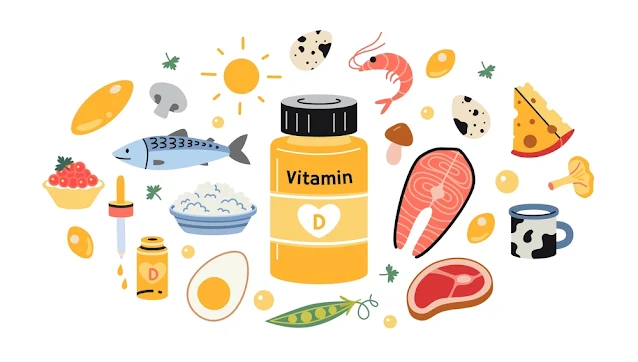Natural Vitamin D Sources: Benefits, Deficiency Symptoms & Tips
Vitamin D, often called the "sunshine vitamin," is crucial for bone health, immune function, and overall wellness. Unlike most vitamins, the body can produce vitamin D through direct sunlight exposure, but due to lifestyle changes, geographic location, and other factors, many people still don’t get enough. In fact, it’s estimated that over one billion people globally are vitamin D deficient.
Why Vitamin D is Important for Health
Vitamin D plays a multifaceted role in maintaining optimal health. It helps the body absorb calcium and phosphorus, two minerals critical for building and maintaining strong bones. This vitamin also supports the immune system, helps manage inflammation, and promotes cell growth, making it essential for children’s development and adult health alike. Adequate vitamin D levels can even protect against chronic diseases such as osteoporosis, heart disease, and certain cancers. Learn more about Vitamin D's role in immunity.
Symptoms of Vitamin D Deficiency
- Low levels of vitamin D can lead to a variety of health problems. Deficiency symptoms can vary depending on the level of deficiency but may include:
- Bone and Back Pain: Vitamin D is crucial for bone density and strength. Low levels can lead to increased pain and may contribute to osteoporosis.
- Fatigue and Tiredness: Persistent fatigue and tiredness are often associated with vitamin D deficiency.
- Weak Immune System: Low vitamin D levels can make individuals more susceptible to infections and illnesses.
- Muscle Pain and Weakness: Deficiency may also cause muscle pain and weakness, especially in older adults.
- Depression and Mood Changes: Studies have shown a correlation between low vitamin D levels and depression or mood changes
- For a deeper dive into vitamin D deficiency symptoms, check this comprehensive guide.
Natural Sources of Vitamin D
While sunlight is a primary source of vitamin D, certain foods are also rich in this nutrient. Here are some of the best natural sources:
1. Sunlight
The most natural way to get vitamin D is by spending time in the sun. When UVB rays from sunlight hit the skin, the body produces vitamin D. Generally, 10-30 minutes of midday sun several times per week is enough to produce adequate vitamin D for most people, though factors like skin tone, age, and location can affect this.
2. Fatty Fish and Seafood
Fatty fish like salmon, trout, mackerel, tuna, and sardines are rich in vitamin D. These fish provide high levels of vitamin D3, the form most effective for raising levels in the blood. Fish liver oils, like cod liver oil, are also excellent sources. Read more about omega-3-rich fish.
3. Egg Yolks
Egg yolks contain small amounts of vitamin D, but they’re more concentrated when chickens are exposed to sunlight or raised on pastures. Pasture-raised eggs may offer significantly higher levels of vitamin D compared to conventional eggs.
4. Mushrooms
Mushrooms, especially those exposed to sunlight or UV light, can naturally produce vitamin D2. Varieties like maitake and portobello are known to have higher levels, but it’s always a good idea to check product labels for vitamin D content.
5. Fortified Foods
Many foods are fortified with vitamin D to help people meet their daily requirements. Commonly fortified foods include milk, orange juice, yogurt, and breakfast cereals. Fortified foods are an excellent option for individuals who have limited sun exposure or do not consume animal products.
6. Beef Liver
Although not commonly consumed, beef liver is a good source of vitamin D, along with other nutrients like vitamin A and iron. Just a small serving of beef liver can help supplement vitamin D intake.
Meeting Your Vitamin D Needs Naturally
For most adults, the recommended daily intake of vitamin D is between 600 to 800 IU. However, individuals with minimal sun exposure or those living in areas with limited sunlight may require higher amounts. A balanced approach includes both sun exposure and a diet incorporating natural vitamin D sources. Regular checks for vitamin D levels are also recommended to ensure you meet your needs.
In cases where natural sources are insufficient, supplements may be an option, but they should only be taken as directed by a healthcare provider. Proper vitamin D levels support not only bone health but also immune resilience and mood stability, offering a range of benefits that highlight the importance of this "sunshine vitamin."





.webp)